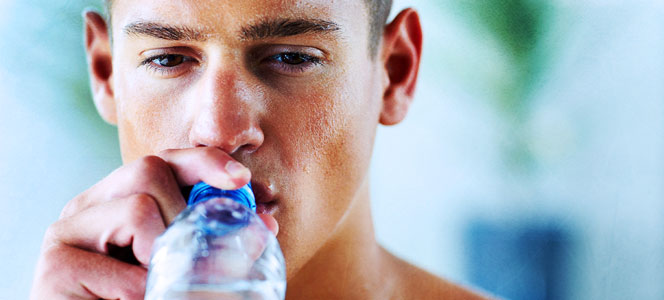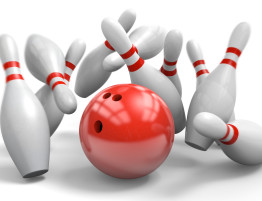
Adequate hydration and fluid replacement is one of the most important nutritional concerns for an athlete. Ensuring that all athletes are adequately hydrated is a critical responsibility for the coach. As small a loss as four percent of body weight (four ponds in a hundred pound person) can seriously affect performance.
Adequate hydration is important throughout the athlete’s participation in sport but particularly during the following times:
- Prior to practice and competition
- During practice and competition
- After practice and competition
As the athlete trains and competes, fluid is lost through the skin through sweat and the lungs while breathing. If the lost fluid i not replaced during this time, it can lead to dehydration. Dehydration is entirely preventable. The coach should plan for adequate hydration of all athletes, regardless of age or gender.
Dehydration means the athlete has a decreased volume of blood circulating through the body, and results in:
- A decrease in the amount of blood pumped with each heart beat
- Exercising muscles do not receive enough oxygen
- Exhaustion sets in and the athlete’s performance suffers
Symptoms of dehydration include: dry mouth, dizziness, inability to produce tears or saliva, inability to sweat or produce urine, a rapid heart rate, delirium, altered mental status, and loss of consciousness. In serious cases, dehydration can cause sudden cardiac arrest, seizures, kidney failure, hypovolemic shock, heart injury, cerebral edema and could ultimately result in death.
One very simple way to determine if an athlete is hydrated properly is to weight them before exercise and after. If the athlete is hydrating properly, there will be very little difference between the weight of the athlete before and after exercise. If a scale is not available, checking the color of the athlete’s urine is helpful. Urine that is dark gold in color indicates dehydration. Urine similar in color to pale lemonade or weak tea is a sign of a hydrated athlete. Coaches should instruct athletes to check their urine and let the coach know when the color is in the dark gold range.
Additional situations that will impact athlete hydration include the climate, altitude and temperature where the athlete practice and competes as well as the intensity of the sport. Special attention should be paid to hydration in climates with extreme heat, prolonged cold and sports such as cycling, track and field.
Several serious medical conditions can occur from not having enough water. The following are examples of substance and drugs that may put the athlete at risk for dehydration:
- Alcohol
- Some asthma medications
- Some blood pressure medications
- Some psychotropic medications
- Vitamin D derivatives
The link: http://www.rightdiagnosis.com/symptoms/dehydration/side-effects.htm lists prescription medications that can cause dehydration. Coaches should be aware of any medications the athlete is taking. If the medications put the athlete at risk of dehydration, the coach should instruct the athlete to drink adequate amounts of water and monitor the athlete for potential dehydration.
The goal is to keep the athlete hydrated and not allow the athlete to become dehydrated. The easiest way is to create a simple, routine system that all your athletes follow:
- Drink plenty of fluids with meals
- Always have water available before, during and after your event
- Don’t wait until you are thirsty to drink
Athletes need to be instructed to drink as much water as they want. If you are practicing in warm environments, you may need to increase the frequency of water breaks. The best fluid replacement is plain water.
Carbohydrate fluid replacement drinks (PowerAde, Gatorade) should not be used by Special Olympics athletes, they are more appropriate for the more intense athletes. Energy drinks are NOT recommended; they contain stimulates and could impact the athlete’s health. In addition some medications the athlete take can be impacted by the excessive caffeine found in energy drinks.






